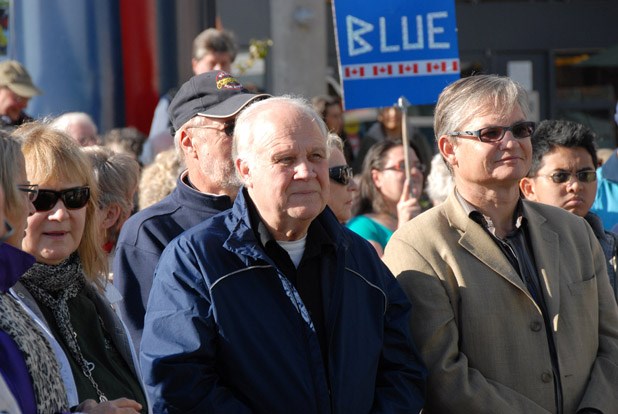The City of New Westminster is heading to court to try and thwart plans to build a coal facility across the river at Fraser Surrey Docks.
Ecojustice, a nonprofit environmental organization, has launched a federal court challenge of the facility on behalf of two local residents and two B.C.-based organizations, Voters Taking Action on Climate Change (VTACC) and Communities and Coal.
The city is getting on board by filing intervener status in support of the court challenge initiated by Voters Taking Action on Climate Change and Communities and Coal.
Coun. Chuck Puchmayr said New Westminster city council met Monday morning and agreed to proceed with intervener status in the court challenge.
“Intervener status can be filed either pro or con, in favour of a submission or you can also file opposed to it,” he told The Record. “We would be filing in favour of what Ecojustice is supporting in the courts.”
In August, Port Metro Vancouver approved the permit that would allow Fraser Surrey Docks to build a coal transfer facility that would see four million metric tonnes of coal from the United States placed on barges and shipped to Texada Island and then Asia.
In a press release, Ecojustice lawyers said the permit issued by Port Metro Vancouver that would allow Fraser Surrey Docks to build a coal transfer facility on the Fraser River must be quashed on grounds of procedural fairness and failure to consider climate impacts.
“Despite local residents’ grave concerns about the project’s climate and human health impacts, it seems that the port’s mind was made up even before the environmental assessment was completed,” Kathryn Harrison of VTACC said in a press release. “Allowing this project to proceed could lock us into another 30 years of coal exports, and be yet another black eye for Canada’s environmental record and reputation as a climate laggard.”
In a statement to The Record, Port Metro Vancouver stated it had received a notice of application for a judicial review of the permitting decision for Fraser Surrey Docks’ direct coal transfer facility.
“Wewill review the information and be assessing our next steps going forward,” said the statement. “It is important to note – a judicial review is a regular avenue available to any person or party that wishes to challenge a regulatory decision of this nature.”
According to Puchmayr, Ecojustice has submitted a “pretty explicit” document that details issues such as bias on the part of Port Metro Vancouver’s approval of the permit.
“We have filed for intervener status. We are certainly going to lobby our counterparts. The deadline to file a court action is today but the deadline to file an intervener status, now that the court action is filed, is lengthier,” he told The Record Monday. “We have asked our staff to file earlier rather than later.”
Several city council members are attending this week’s Union of B.C. Municipalities’ convention in Whistler. While in Whistler, Puchmayr hopes he’ll be able to convince council colleagues in other cities that will be “adversely affected” by the coal facility to come on board and file intervener status.
“We feel that the board is biased and have displayed bias in their actions and the decision should be overturned,” he said.
Last fall, Port Metro Vancouver requested additional measures from Fraser Surrey Docks regarding the facility, including: working with the rail provider to address the issue of potential dust migration from rail cars; revising its proposal so temporarily stockpiling on the Surrey site isn't required; ensuring that coal dust doesn't migrate from barges at the terminal and along its route to its destination; and requiring Fraser Surrey Docks to undertake an environmental impact assessment about the project.
“I have no confidence in that whatsoever,” Puchmayr said. “Port Metro calls all the shots. What they said upfront to try and put some sugar to the medicine upfront – they can change that with a stroke of a pen. I am worried once the public is exposed to it and their economic needs are greater than that, that could be really severe.”



